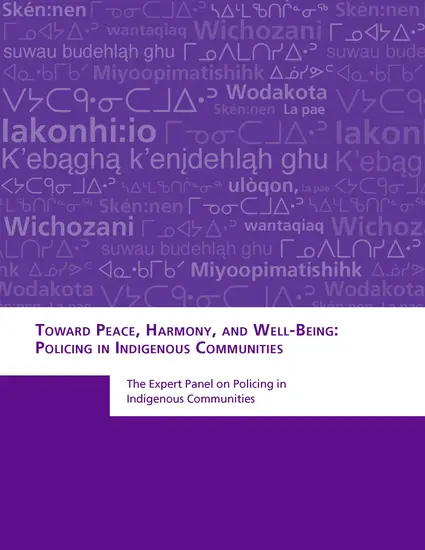
Policing in Indigenous communities presents challenges that are distinct from those for policing in non-Indigenous communities. These challenges are embedded within a set of cultural, social, historical, legal, political, and geographic considerations.
Recognizing these unique challenges, Public Safety Canada asked the CCA to undertake an assessment examining what could be drawn from the current evidence and knowledge about the present and future role of police services in Indigenous communities in Canada and to identify some promising and leading practices in policing that could be applied in Indigenous communities.
To address the question, the CCA convened a multidisciplinary panel of 11 experts from Canada and abroad with knowledge and experience in Indigenous law and public policy, criminology, psychiatry and mental health, and policing services.
